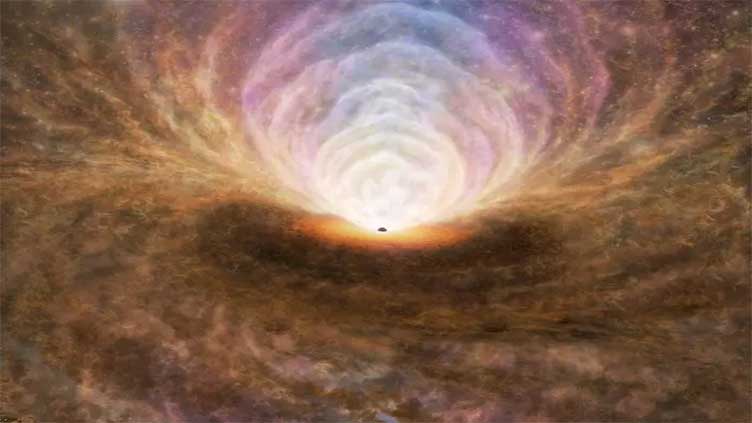This monstrous black hole may be the oldest ever discovered

Technology
The black hole is just a few hundred million years younger than the universe itself
(Web Desk) - In a remote corner of the universe, there is a very old, very massive and very hungry monster — a black hole so massive it has a million times the mass of the sun in the process of devouring its host galaxy with gusto.
And now, scientists estimate that this black hole is not just notable for its size and appetite, but also for its age.
In a new paper published in the journal Nature, a team using NASA's James Webb Space Telescope shows this Lovecraftian nightmare is likely 13.3 billion years old — that's almost as old as the universe, and means it existed a mere 400 million years after the Big Bang. That would make it likely the oldest black hole ever discovered.
But its size and age are a conundrum: Previously, scientists thought supermassive black holes like this one must take billions of years to form and grow.
The fact that this one became so massive so fast after the birth of the universe could mean we need to update the theories that explain these behemoths. In other words, they could be born this way. Or capable of consuming matter far faster than we thought.
"It’s very early in the universe to see a black hole this massive, so we’ve got to consider other ways they might form," said Roberto Maiolino, a professor of experimental astrophysics at the University of Cambridge and a co-author of the study, in a statement.
"Very early galaxies were extremely gas-rich, so they would have been like a buffet for black holes."
This black hole lies in a small galaxy called GN-z11, which appears in the Ursa Major constellation and is located around 13 billion light-years from Earth.
The galaxy is relatively scrawny compared to our Milky Way, but the study’s findings could explain why: The black hole could be eating gas at such a high rate that it also manages to push some of its matter out into intergalactic space.
It's possible that astronomers will discover other, even older massive black holes in the future with the Webb Telescope, Maiolino said, because it's just better at seeing very far in the universe than the instruments astronomers had to work with before.
"It’s a new era: the giant leap in sensitivity, especially in the infrared, is like upgrading from Galileo’s telescope to a modern telescope overnight," said Maiolino.
"Before Webb came online, I thought maybe the universe isn’t so interesting when you go beyond what we could see with the Hubble Space Telescope.
But that hasn’t been the case at all: the universe has been quite generous in what it’s showing us, and this is just the beginning."


